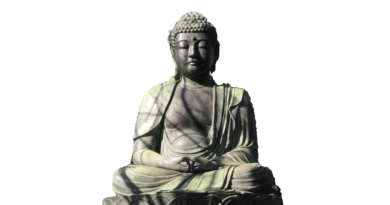
The Science and Spirituality of Manifestation: A Buddhist Perspective
In the age of vision boards, affirmations, and “high-vibration” living, manifestation has become a buzzword in the Western world. The idea that you can attract the life you want through focused intention and belief has become a spiritual and self-help staple. But while this may seem like a modern phenomenon, the deeper truth is that the core concept behind manifestation is far older — and far more profound — than Instagram posts or New Age workshops suggest.
In fact, the foundation of manifestation lies at the heart of Buddhist philosophy and, interestingly, is now finding echoes in the cutting-edge discoveries of quantum physics.
This blog post explores how Buddhism and quantum science converge to offer a radical, empowering — yet humble — view of how our minds shape reality.
Manifestation in the West: Powerful But Incomplete
In its popular form, manifestation is described as the idea that your thoughts create your reality. If you can focus on what you want — be it love, abundance, or success — and feel it as if it’s already true, you will “attract” it into your life.
This mindset emphasizes personal power and responsibility, which can be transformative. But it also carries risks: oversimplifying complex life situations, fostering spiritual bypassing, or turning desire into obsession.
Where it often falls short is in understanding the deeper mechanics of how reality actually arises — not just spiritually, but scientifically.
Buddhism: Manifestation as Ethical Intention and Mental Causality
In Buddhism, the core idea is not that thoughts magically create outcomes, but that our inner world — our intentions, mental habits, and actions — shapes our lived experience.
This is the essence of the law of karma and dependent origination.
🧘♂️ Intention as the Architect of Experience
“It is volition, monks, that I call karma; for having willed, one acts by body, speech, and mind.” — The Buddha, AN 6.63
In Buddhist psychology, intention (cetana) is the seed of all future experience. What you intend, you become. Not through mystical force, but through a lawful process of cause and effect.
So yes, you do manifest your reality — but not by “thinking hard enough.” You manifest through clarity of mind, ethical conduct, mindfulness, and letting go of craving.
Enter Quantum Physics: Consciousness, Observation, and the Nature of Reality
What makes this conversation even more fascinating is how quantum physics — the science of the very small — starts to reflect what Buddhist sages have taught for centuries.
🔬 The Observer Effect
In quantum mechanics, one of the most baffling discoveries is the observer effect: the idea that the act of observation can influence the outcome of an experiment. A subatomic particle behaves differently depending on whether it is being measured or not.
This suggests that consciousness and observation are not separate from reality — they participate in it.
🌌 Reality as Probabilities
At the quantum level, particles exist in a state of potential — multiple possibilities at once (called a “superposition”) — until they are observed. Observation collapses these potentials into one actual event. This isn’t unlike the Buddhist view that reality is fluid and conditioned, not fixed.
Buddhism teaches that the world we experience is not inherently solid or independent, but is co-created by our perceptions, beliefs, and karma. What we habitually attend to, cultivate, and reinforce — in thought, word, and action — becomes the shape of our world.
Quantum physics suggests the same: reality is participatory, and mind plays a role.
The Mind as the Bridge
Where Buddhism and quantum physics intersect is at the level of consciousness.
Both traditions — one ancient and contemplative, the other modern and empirical — point to a non-dual relationship between the observer and the observed. The mind is not just a passive receiver of reality. It is intimately involved in its unfolding.
So when Buddhism says, “What you think, you become,” and quantum physics says, “What you observe collapses into reality,” they’re both touching the same mystery from different angles.
Manifestation Beyond the Ego
Now, it’s important not to misinterpret this as a license for magical thinking. Neither Buddhism nor quantum physics suggests that you can simply “think a car into your driveway” or “manifest money by wishing for it.”
Instead, they invite a more subtle and profound truth:
Your internal world — your focus, emotion, belief, and clarity — deeply influences the probabilities and experiences that arise in your life.
But not through force — through alignment.
Buddhism teaches that when your mind is aligned with wisdom, compassion, and mindfulness, you harmonize with the natural flow of reality (the Dharma). You begin to act, speak, and live in ways that generate well-being — not just for yourself, but for others.
This is manifestation in the truest sense: becoming the kind of person from whom peace, purpose, and fulfillment naturally arise.
Letting Go: The Paradox of Power
Here lies the paradox: in Buddhism, the less you cling to specific outcomes, the more powerfully your intentions manifest. Craving (tanha) creates suffering; letting go creates spaciousness, clarity, and energy.
Modern manifestation says, “Focus hard on what you want.”
Buddhism says, “Let go of wanting, and live with clarity and compassion. What you need will follow.”
Quantum physics again aligns: the less interference from external forces, the clearer the wave function — the more accurate the result.
Bridging East and West: A New Vision of Manifestation
| Concept | Buddhism | Quantum Physics |
|---|---|---|
| Role of the Mind | Mind shapes reality through karma and intention | Observation collapses probabilities into outcomes |
| Nature of Reality | Conditioned, interdependent, not solid | Probabilistic, uncertain, influenced by measurement |
| Key Practice | Ethical intention, mindfulness, mental training | Focused observation, minimal disturbance |
| Goal | Liberation from suffering | Understanding the fabric of reality |
| View of the Self | Non-self, ever-changing process | No fixed identity at quantum level |
Final Reflection: Manifest with Wisdom, Not Craving
So, is manifestation real? Yes — but not in the way we’re often told.
From a Buddhist perspective, and increasingly from a quantum one, you are not a separate self trying to control the universe. You are a participant in a vast web of interdependent causes and conditions, and your consciousness plays an active role in shaping what arises next.
This is not magic. It’s not wishful thinking. It’s a sacred responsibility.
If you want to manifest peace, practice peace.
If you want to manifest abundance, cultivate generosity.
If you want to manifest clarity, meditate and observe.
If you want to manifest love, be loving — not just in thought, but in intention, action, and awareness.
Because in the deepest sense, you don’t get what you want. You get who you are.
And who you are begins — always — in the mind.
Photo from unsplash.com by Susan Wilkinson



